Table of Contents
Electoral Bonds Scheme is unconstitutional… Supreme Court gave a big blow to the government on funding
About two months before the Lok Sabha elections, all political parties including the BJP have suffered a setback from the Supreme Court. The constitutional bench of the apex court has abolished the system of electoral bonds, which was implemented from April 2019. Apart from this, political parties have also been ordered to return the funding received from electoral bonds. The biggest setback from this is being considered to be the BJP because it was getting the highest donations from electoral bonds.
The court said that electoral bonds are banned from today itself. State Bank of India (SBI) will have to give information about who bought electoral bonds and how much money they have invested since April 12, 2019. The court said that this information will first be given to the Election Commission by the State Bank. Then the public will get this information from the Commission. The court said that such purchase of electoral bonds would only encourage black money. There will be no restriction and transparency is also violated.
The Supreme Court has given a big blow to the government on the electoral bond scheme. The country’s highest court has struck down the electoral bond scheme as unconstitutional. Not only this, the Supreme Court has also asked for the account of donations for the last five years. Now the elector will have to tell which party has donated how much to which party in the last five years. The Supreme Court has said that it should collect complete information from State Bank of India (SBI) and share it on its website. This decision of the apex court is also being considered as a big setback for the industry.
Donations are made to political parties through electoral bonds. This was first arranged by the Finance Minister in the Union Budget of 2017-2018. After this, the Electoral Bond Scheme was introduced on 29 January 2018. Under this, any person or company of India from a select branch of State Bank of India could buy bonds in multiples of one thousand, 10 thousand, one lakh and one crore rupees and donate to the party of his choice.
The condition was that it could be purchased through the same accounts, in which the KYC information was complete. Within 15 days of buying bonds from SBI, it had to be used to make donations to political parties registered under Section 29A of the Representation of the People Act. However, donations can be made through electoral bonds only to political parties which have secured at least 1% of the votes polled in the most recent Lok Sabha or Assembly election. There was no maximum limit for an individual or company to buy bonds. In the event of political parties not redeeming the bonds within 15 days, the amount was to be deposited in the Prime Minister’s Relief Fund.
When were electoral bonds introduced : Electoral bonds were introduced along with the Financial Bill (2017). On January 29, 2018, the Narendra Modi-led NDA government notified the Electoral Bond Scheme 2018 . It started from that day
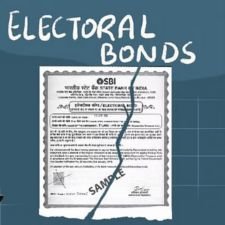
When were electoral bonds available for sale?
Electoral bonds to be sold by the government at the beginning of every quarter for a period of 10 days;(c) Funds have been provided. In the meantime, they were purchased. The government has fixed the first 10 days of January, April, July and October for purchase of electoral bonds. In the year of Lok Sabha elections, the government had planned to fix an additional period of 30 days.
While introducing electoral bonds, the government had claimed that it would increase transparency in political funding. Through this bond, donations could be made to the party of their choice. Any Indian citizen, corporate and other entities could buy electoral bonds and political parties could en-cash these bonds in banks and get the money. Banks used to sell electoral bonds to the same customer whose KYC was verified.
The name of the donor was not mentioned on the bond. Investors in electoral bonds did not officially get any returns. This bond was similar to a receipt. The bonds were bought in the name of the party you wanted to donate to and the money was provided to the political party concerned. Instead of donating directly to a political party, there is a provision to give this exemption under section 80GGC and 80GGB of Income Tax on the amount given through electoral bonds.
What is the electoral bond scheme case?
In 2017, the Central Government introduced the Electoral Bond Scheme in Parliament through the Finance Bill. After passing from Parliament, the notification of the Electoral Bond Scheme was issued on 29 January 2018. Through this, political parties get donations. The Association of Democratic Reforms challenged the electoral bond in the Supreme Court, saying that it was used by corporates on a large scale. They have given it to the parties. These people can influence policy decisions through this.
Questions about electoral bonds
Political parties are required to submit details of donors directly or through cash or cheques to the Election Commission, but the name and address of donors through bonds are not required to be given. Those challenging electoral bonds in the Supreme Court argue that the bond violates the fundamental right to know of citizens. Also, questions were being raised about transparency in giving donations to political parties.
According to the Association for Democratic Reforms (ADR), it does not contain the name of the buyer or payer of the bond, no ownership information is recorded and the holder i.e. political party is considered its owner. ADR argues that electoral bonds do not give any details to citizens but the government can always get donor information by seeking data from SBI. The ADR said the Election Commission had pointed out that any donations received by a political party by way of electoral bonds were exempted from the purview of reporting.
In the applications filed against electoral bonds, it was said that such a rule is wrong. This will not eliminate black money but can only increase. At the same time, the government’s side was that only the public would not have this information. The government, banks and income tax department will have this data. In such a situation, there can be no disturbance from this. The court rejected the government’s argument that there was nothing wrong in not informing the public about electoral bonds. The bench said that such a rule is a violation of RTI.
There is also an argument that even though political parties through electoral bonds are not allowed to do so, The Election Commission may not have known about the donor of the company, but it was not completely confidential either, because SBI has complete records of who bought the bonds and donated to which party. Opposition parties argue that the ruling party can easily collect this information and then use it to influence donors.
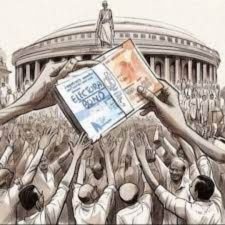
What will happen to the bonds that have been issued?
The Supreme Court has directed to make public the details of electoral bonds purchased since the interim order of 2019. The State Bank has been instructed to give all the information to the Election Commission. The details should include the date on which such bond was redeemed and the amount thereof, it said. The complete details will have to be made available by March 6 and the Election Commission will have to publish it on its official website by March 13.
Question related to Right to Information
The system of electoral bonds was brought by amending the Companies Act and the Representation of the People Act. Under this, no other party or common people can get information about the purchase of electoral bonds. When this question arose during the hearing in the court, the government said that this information will remain with the bank, the Income Tax Department. On this, the petitioners said that even if other parties do not get information, but the public should know. This is even outside the RTI, which is wrong.
While bringing electoral bonds, it was said that its purpose was to eliminate black money transactions in donations received by political parties. Attorney General R Venkataramani had also told the Supreme Court that this scheme encourages the use of white money in donations to political parties. However, those who raised voice against it say that the opposite happened and the name of those who donated through bonds was kept confidential. On this, the Attorney General had argued before the top court that citizens cannot have a general right to know anything and everything without being subject to reasonable restrictions.
The Supreme Court said in its judgment that the confidentiality provision in the electoral bond scheme violates the Right to Information Act under Article 19(1) of the Constitution. Now after the decision of the Supreme Court, the public will also know who has funded which party. Four people had challenged the validity of the electoral bond scheme by filing a petition in the Supreme Court. While hearing these petitions, the Supreme Court has given a decision that can have far-reaching effects, especially in view of the Lok Sabha elections.
Bribery cannot be allowed to be legalized
The Supreme Court expressed apprehension that if the identity of those funding political parties remains secret, then there may be a case of bribery. Justice Gavai, who was also part of the bench, said that bribery cannot be allowed to be legalized through the back door. He said the scheme cannot be allowed to become a means for the ruling party to take undue advantage in return for funding. He also talked about the rights of voters.
The case pertains to the electoral bond scheme allowing donations to political parties in a clandestine manner. In this case, the Constitution Bench of five judges reserved its verdict on November 2, 2023, after a three-day hearing. The Supreme Court, while reserving its verdict, had asked the Election Commission of India (ECI) to submit data by September 30, 2023, regarding electoral bonds sold under the scheme.
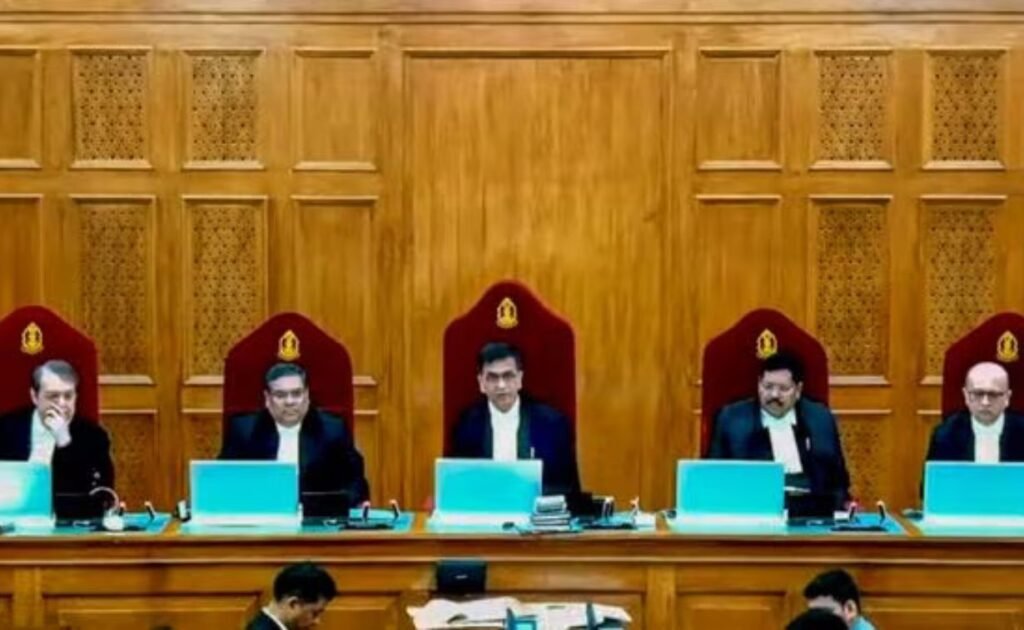
5-member Constitution Bench will decide
The case was heard by a five-judge Constitution bench headed by Chief Justice of India DY Chandrachud. The bench comprised Justices Sanjiv Khanna, BR Gavai, JB Pardiwala and Manoj Mishra. The Constitution bench heard the arguments given by both the parties and the opposition from October 31 to November 2. After a three-day hearing, the court reserved its verdict on November 2.
Who raised the question on electoral bonds?
Four petitions, including Congress leader Jaya Thakur, the Communist Party of India-Marxist and NGO Association for Democratic Reforms (ADR), have filed petitions on electoral bonds. The petitioners say that clandestine funding through electoral bonds affects transparency. It also violates the right to information. They say that it has also allowed donations from shell companies. The hearing on electoral bonds had started on October 31 last year. The bench headed by Chief Justice DY Chandrachud comprises Justices Sanjiv Khanna, BR Gavai, JB Pardiwala and Manoj Mishra.
Who can buy electoral bonds?
The electoral bond scheme allows donors to send money anonymously to a political party after purchasing it from the State Bank of India (SBI). Who can buy electoral bonds and whom can they give them? Any Indian citizen, company or institution can buy electoral bonds. For this, bonds are purchased from the fixed branch of State Bank of India (SBI). Whenever the bond issue is announced, anyone can buy bonds ranging from one thousand to one crore. After buying the bond from the bank, the donor can give the bond to whichever party he wants by filling his name.
Who gets electoral bonds?
Whichever is a registered party gets this bond, provided that the party gets at least one percent or more votes in the last general election. Such a registered party will be entitled to receive donations through electoral bonds. According to the government, “Electoral bonds will curb black money and the amount donated in the form of elections will be accounted for.” This will improve electoral funding. The central government, in its counter affidavit, said the electoral bond scheme is transparent.
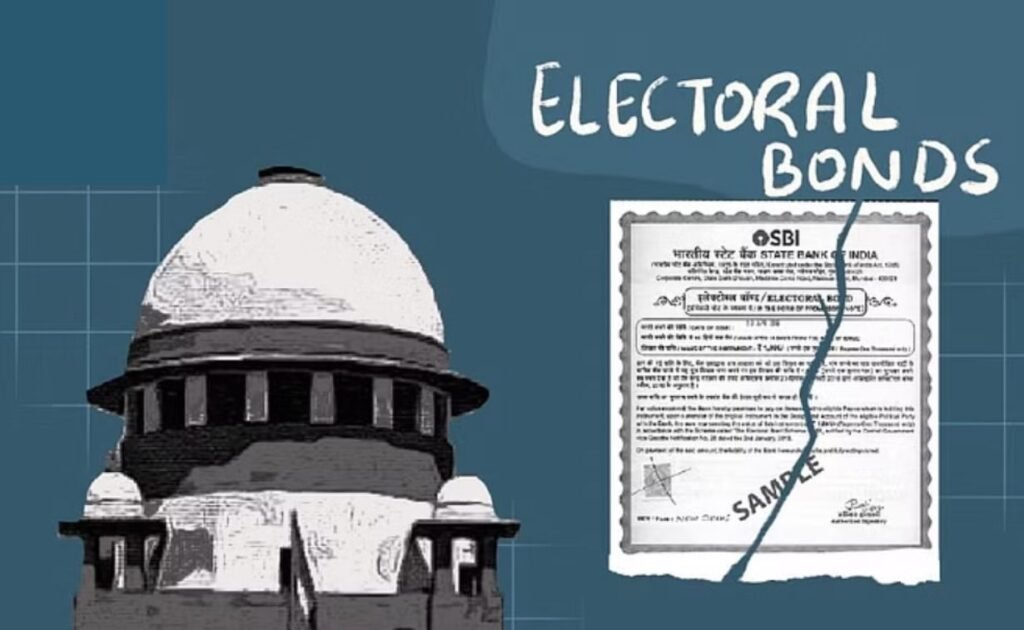
Electoral bonds cancelled and Election Commission also slammed
The electoral bond scheme has been canceled by the Supreme Court. Through this scheme, political parties were getting donations from individuals and institutions. The biggest setback from this decision has been to the BJP, which was getting the most funds. The court said that under the scheme, which was implemented from April 2019, the information about how much donations received by the party will have to be given to the Election Commission.
Then the Election Commission has to put this list on the website. This decision, which came just two months before the Lok Sabha elections, has dealt a severe blow to all political parties including the BJP sitting in power at the center. The court also pulled up the Election Commission during the hearing. “You are the agency that completes the election process.
If you do not know how much money the political parties got from where in the election, then how will there be transparency? Saying this, the court has ordered the bank to give information about the buyers of the bonds to the Election Commission. Then the commission should share that information on its website.
What did the BJP say on the Supreme Court’s decision, also talked about the Election Commission
Reacting to the apex court’s verdict, BJP leader Nalin Kohli said, “It is not a setback for us. He said that funding was not only going to the BJP but to all parties. Kohli said that if the court has quashed the scheme, then he must have felt that there was something wrong in it. He said that now something new should be brought with the suggestions of the Election Commission. It is important that election funding is clean and black money is stopped. That is the basic motive.
Conclusion By aAditri Digital
The Supreme Court’s ruling declaring the Electoral Bond Scheme unconstitutional is a landmark decision with far-reaching implications for political funding in India. By abolishing the scheme and mandating the disclosure of donor information, the court has taken a significant step towards enhancing transparency and accountability in the electoral process. This decision not only addresses concerns about clandestine funding and the influence of black money but also upholds the fundamental right of citizens to be informed about political financing.
The court’s emphasis on the Right to Information Act underscores the importance of transparency in democratic governance. Furthermore, the ruling highlights the need for electoral reforms to strengthen democratic institutions and prevent the misuse of power for undue advantage. While the decision may pose challenges for political parties, particularly those heavily reliant on electoral bonds, it ultimately serves the broader interest of promoting integrity and fairness in the electoral system. Moving forward,
it is imperative for stakeholders to work towards implementing measures that foster clean and transparent election funding, thus safeguarding the integrity of the democratic process.
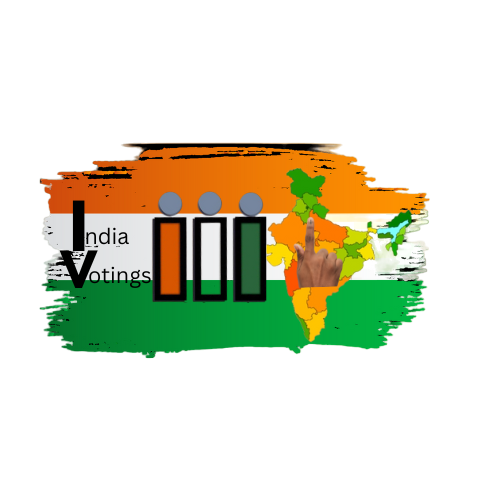
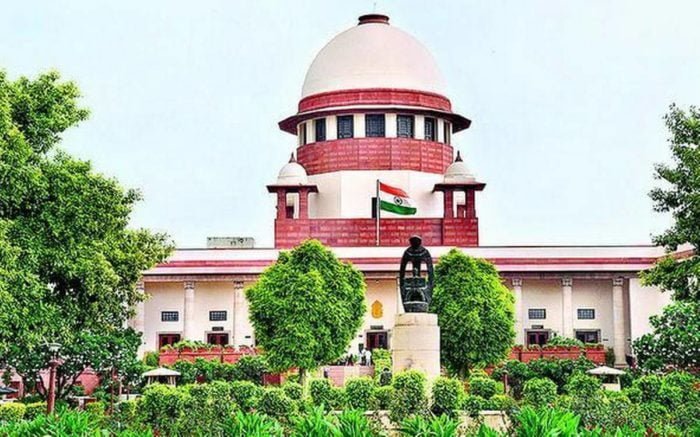



Leave a Reply